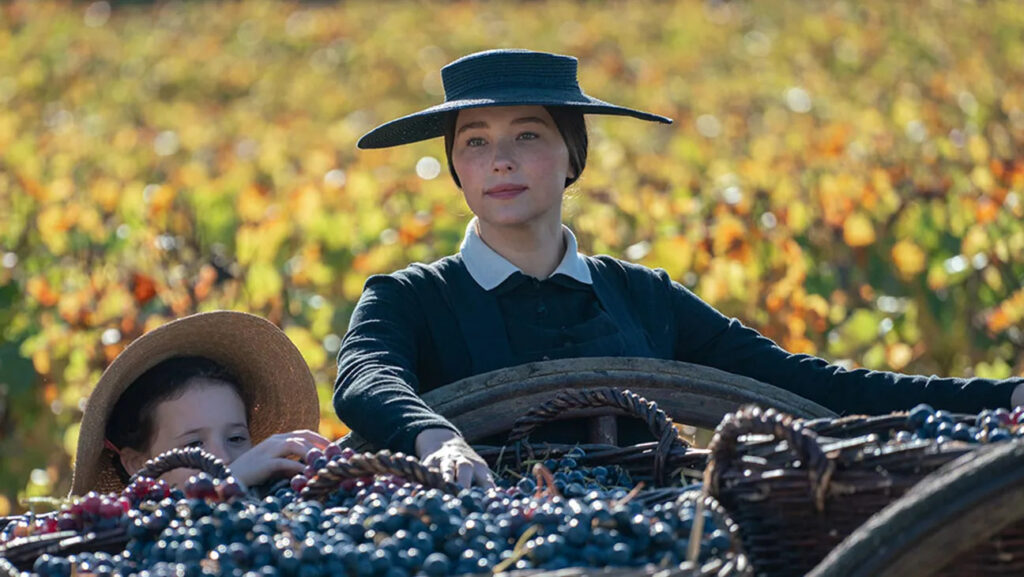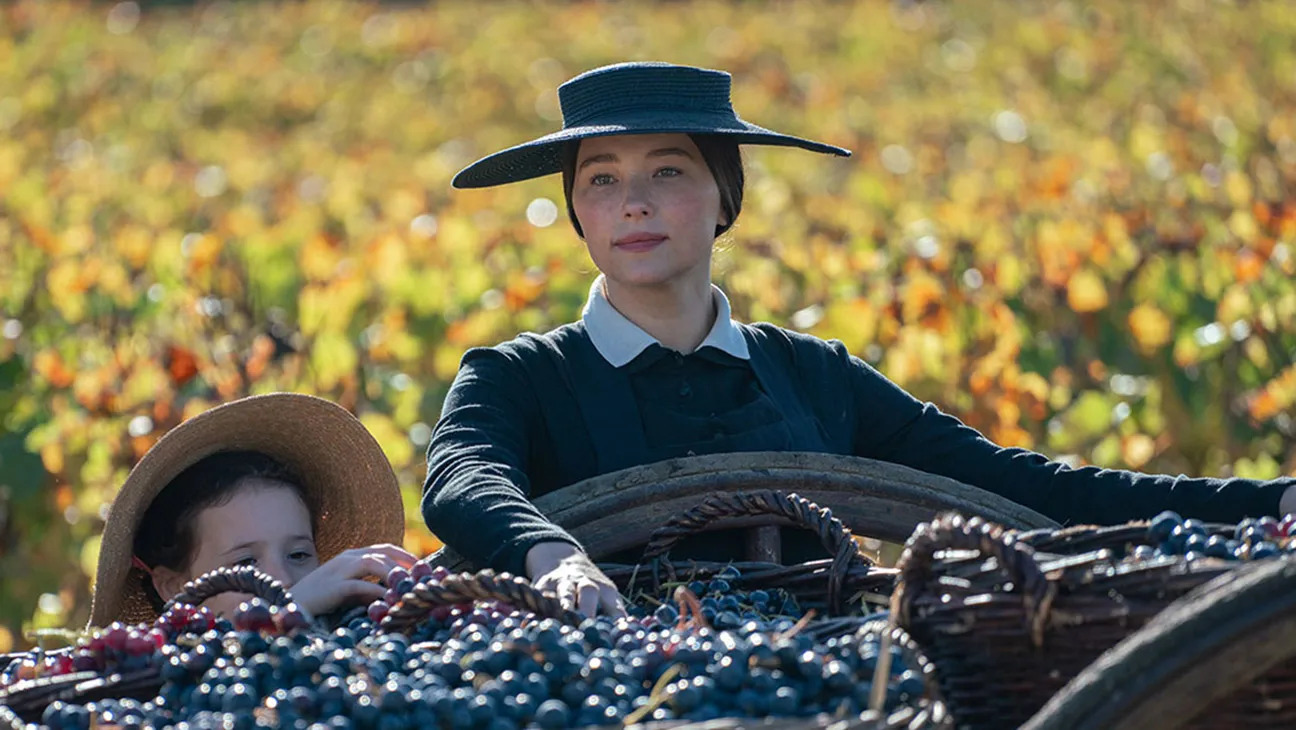Widow Clicquot
Posted on July 18, 2024 at 5:48 pm
B| Lowest Recommended Age: | High School |
| MPAA Rating: | Rated R for strong bloody violence, language, sexual content, nudity, and some drug use |
| Profanity: | Strong language |
| Alcohol/ Drugs: | Drinking, drugs |
| Violence/ Scariness: | Very sad death, reference to war |
| Diversity Issues: | A theme of the movie |
| Date Released to Theaters: | July 19, 2024 |
I never knew that the legendary Veuve Cliquot champagne was named for the woman who created it in the late 18th century. Veuve means widow.

Haley Bennett, who also produced, plays Barbe-Nicole Ponsardin Clicquot, devastated by the death of the husband she adored when she was still in her 20s. In flashbacks (too many) throughout the film, we see that her relationship with Francois (Tom Sturridge) was deep, intimate, and meaningful. They were both committed to full partnership in the family wine business and he had complete faith in her judgment and taste. That is why, almost unheard of in that era, he made it clear in his will that he was leaving her the vineyards and the business. Throughout the film, she faces one crisis after another as her father-in-law, Philippe (Ben Miles), tries to seize control of the company, her less hierarchical and more inclusive relationship with her workers is challenged, and production and logistics problems make it impossible for her to sell her wine. She gets support (and more) from a man who was her husband’s close friend (perhaps more) and the sales and distribution partner of the business, (Sam Riley).
Cinematographer Caroline Champetier, production designer Stéphane Sartorius and the sound team have created an immersive world that makes us feel like we’re inside a Napoleonic era oil painting. The creaking floorboards, high ceilings, and flickering candlelight are in sharp contrast to the natural world of the vineyard, where Barbe-Nicole is happiest and most at home. Bennett has a quiet, almost serene, quality but seems to glow from within. Her scenes with Sturridge in the blissful early days and then as he became more unstable (there is an implication that he may have committed suicide) and when she makes the decision to send their daughter away to protect her from her father’s deterioration, are subtle but effective, as is Barbe-Nicole’s passion for the vineyard and for making the most delicious champagne ever created. As she talks about the flavors and the size of the bubbles, as she talks about evading Napoleon’s restrictions on international sales, she is quiet, but sure. A defining moment is when she explains that she wants to rotate the crops because the vines need to struggle. That moment and her literal final word tell us that one of the world’s most delicate and cherished drinks is the result of struggle, one that all who embraced considered worth it.
Parents should know that this film includes a mental breakdown and a possible (offscreen) suicide, grief, some sexual situations with nudity, and the misogyny of the era.
Family discussion: Why was Madame Clicquot so confident and determined? What was unusual about the way she treated her employees? Was she right to try to evade the trade restrictions?
If you like this, try: The book by Tilar J. Mazzeo, and Bennett’s film, “Cyrano.” And, if you’re old enough, try some champagne.

